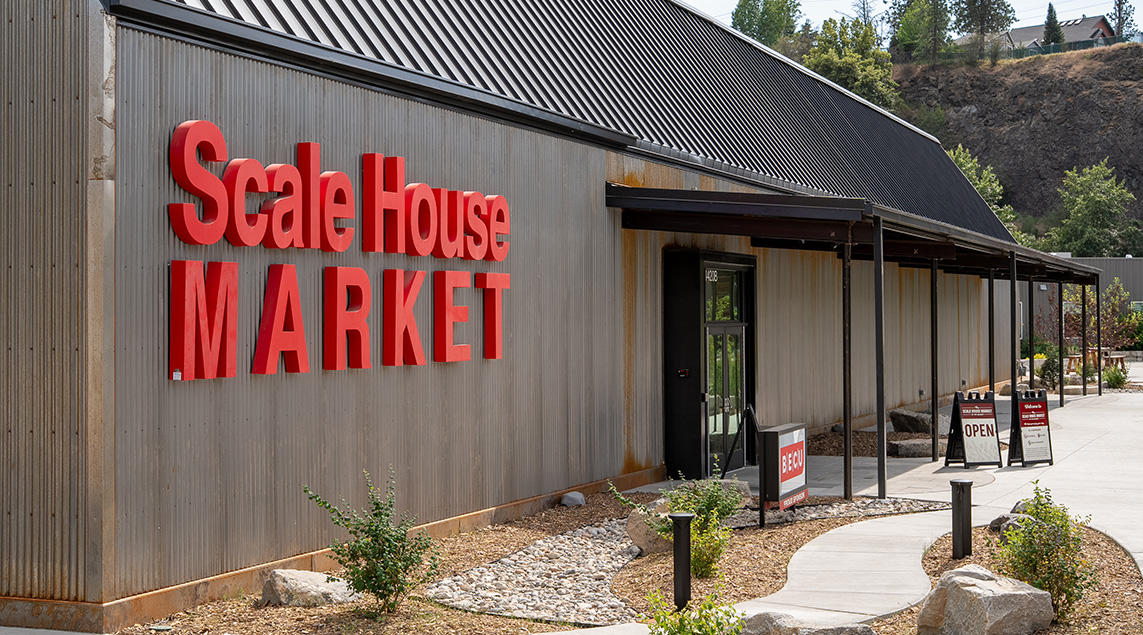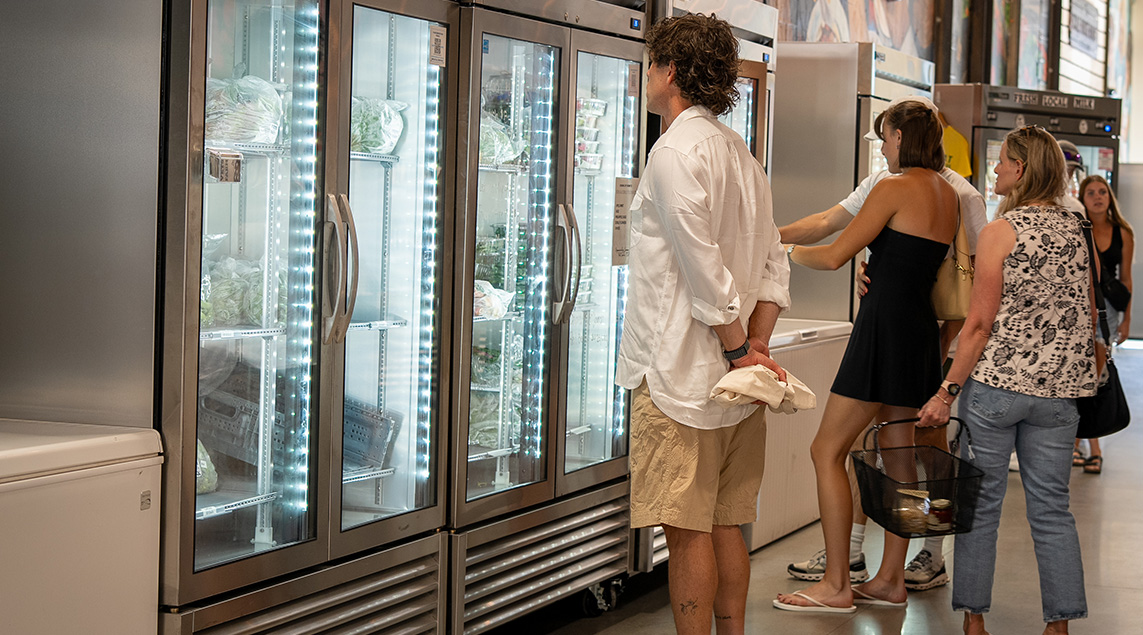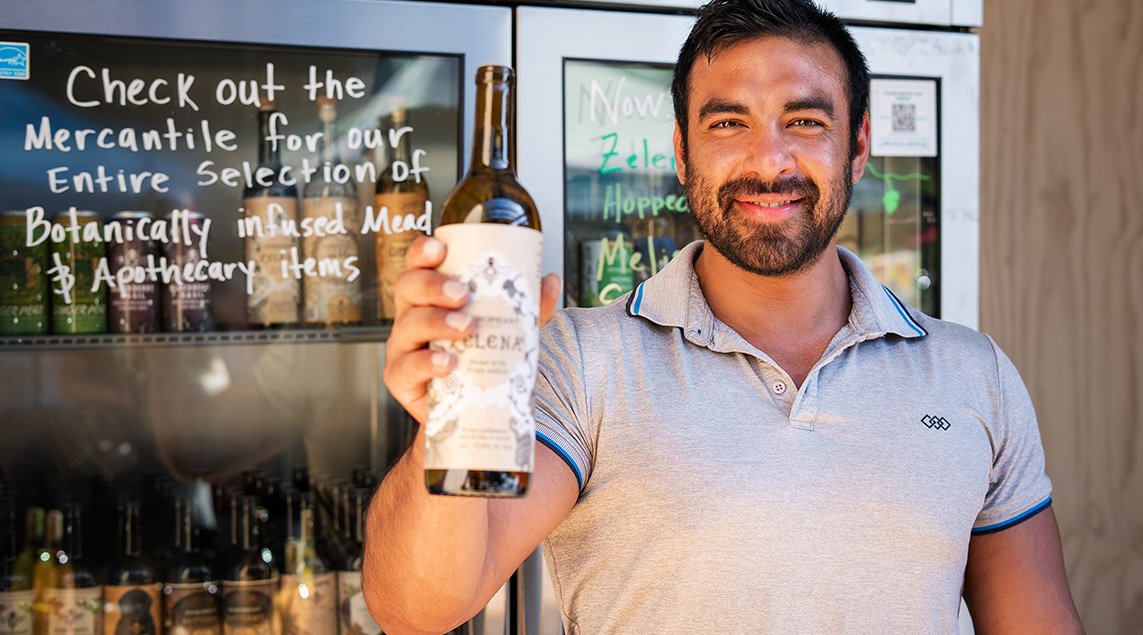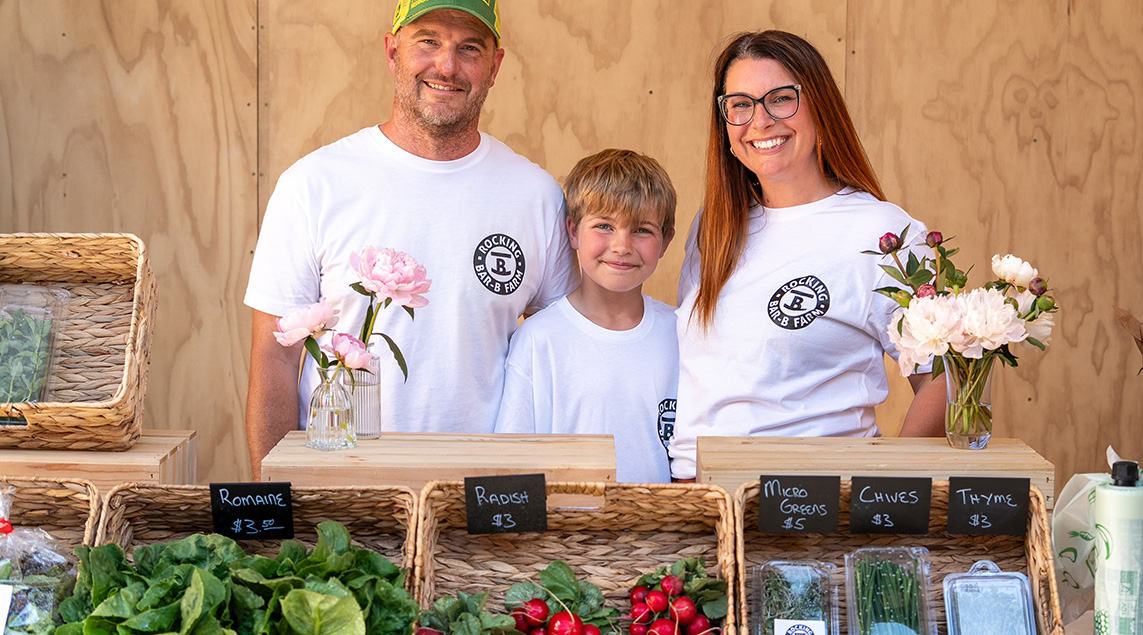



Tucked between Spokane and Spokane Valley, a once-industrial site has transformed into a vibrant hub of food, community, and opportunity.
The Scale House Market is the region’s first year-round farm and food hub that’s redefining what food access and sustainability look like in the Inland Northwest.
The Scale House Market sits on a site once used for asphalt production. The original “scale house”—a long, narrow building where trucks were weighed—has been repurposed into a mercantile space that now houses over 45 local vendors. Step inside and you’ll find displays of fresh produce, handmade goods, pantry staples, and more—all sourced from farmers, artisans, and small businesses within 100 miles of Spokane.
Murals by Spokane-born artist Michael Che Romero decorate the walls, offering a colorful look at the region’s food system and the people who power it.
“It’s been incredible to see the community come in and really embrace the market and our vendors,” said Brittany Tyler, Director at the Scale House Market.
The market is more than a place to shop. It’s a solution to a problem.
The surrounding neighborhood was previously designated a food desert by the USDA, meaning it was an area with limited access to affordable and nutritious food.
Now, thanks to the market’s indoor and outdoor spaces, commercial kitchen, and cold storage, residents have access to fresh, healthy food year-round.
“Everybody eats, and everybody deserves to eat food that is nutritious, that comes from your local farmer and producer,” Brittany emphasized. “That’s what you’re going to find here.”
At the heart of this transformation is a powerful partnership with Avista, whose grant funding and energy-efficient solutions helped bring the market’s vision to life.
“As we were building out the funding sources for this particular project, we identified some needs in refrigeration,” said Brittany. “Avista came in and they provided us with the funding to purchase not only the appliances we needed but the more energy-efficient models of those appliances.”
Avista provided a grant through the Named Communities Investment Fund to purchase energy-efficient refrigerators. These units help keep food cool and fresh, allow vendors to scale their operations, and reduce the burden of high utility costs.
“Every penny really does count,” said Brittany. “Saving on those utility bills means that we can offer extended services to our vendors, to our consumers, and to every partner that’s a part of this project.”
The refrigeration has even benefited outdoor vendors, like Pacific Northwest Mushrooms, Serai Mas, and Hierophant Meadery, who can now store more products on-site and expand their offerings.
“When we think about Washington’s energy future, affordability and access are key. That’s why Avista’s NCIF grant program is so important,” said Ana Matthews, Avista NCIF program manager. “It helps make energy efficiency part of everyday life for Washington families and small businesses.”
The Scale House Market isn’t just a local success story. It’s a blueprint for other places.
“Our hope for the future is that this becomes a model for other communities,” said Brittany. “We want this to be replicable. We want people to see that nutrient density matters, sustainability matters, and energy efficiency matters.”
And when asked whether she’d recommend Avista’s grant programs to other nonprofits or small businesses? “Absolutely,” she said. “Avista was one of our easiest groups to work with. We really just had to say, ‘This is what we need,’ and they said, ‘Let’s get to work.’”
NCIF is a competitive grant program that provides funding support to clean energy projects, programs, and initiatives that directly benefit Washington electric customers who are members of Named Communities. Named Communities are populations that are most often disproportionately and negatively impacted by environmental change, due to unemployment, housing and food insecurity, income inequality, and other factors.
The competitive grant program is part of Avista’s commitment to Washington’s Clean Energy Transformation Act, as we strive to make clean energy more equitable and accessible for Washington customers.
NCIF applications are accepted on a rolling basis until all funding has been awarded.



